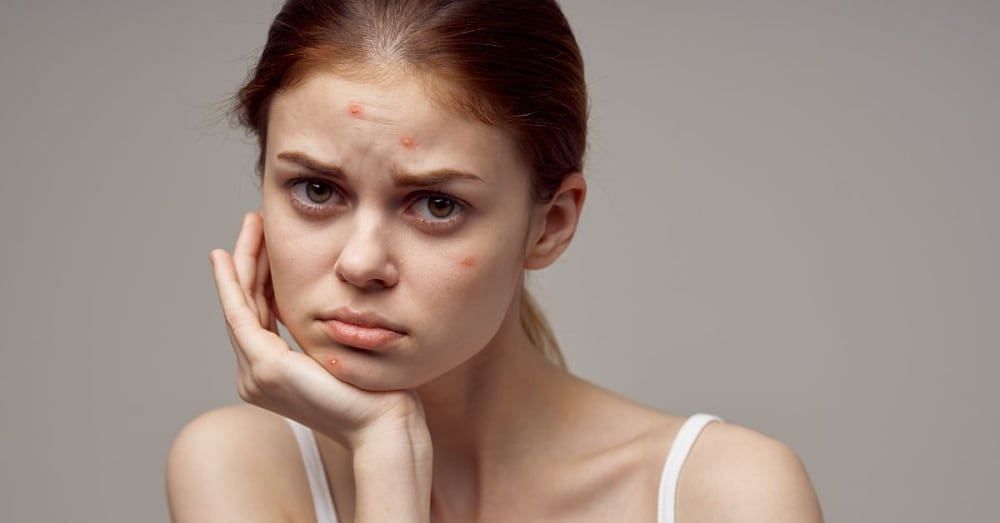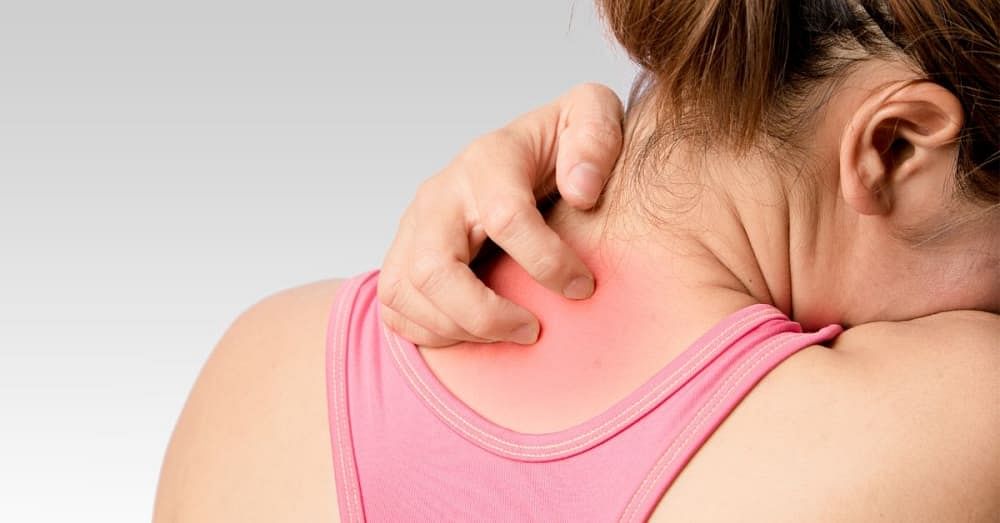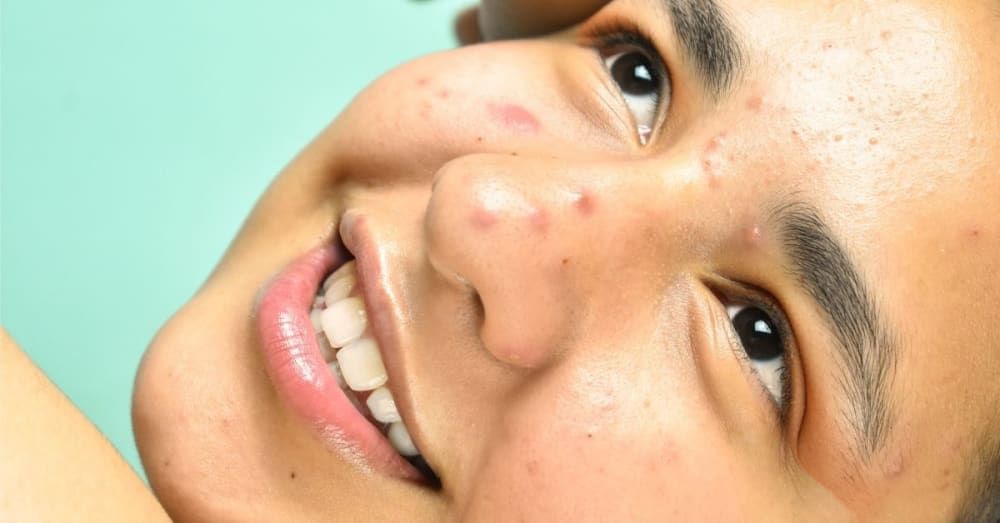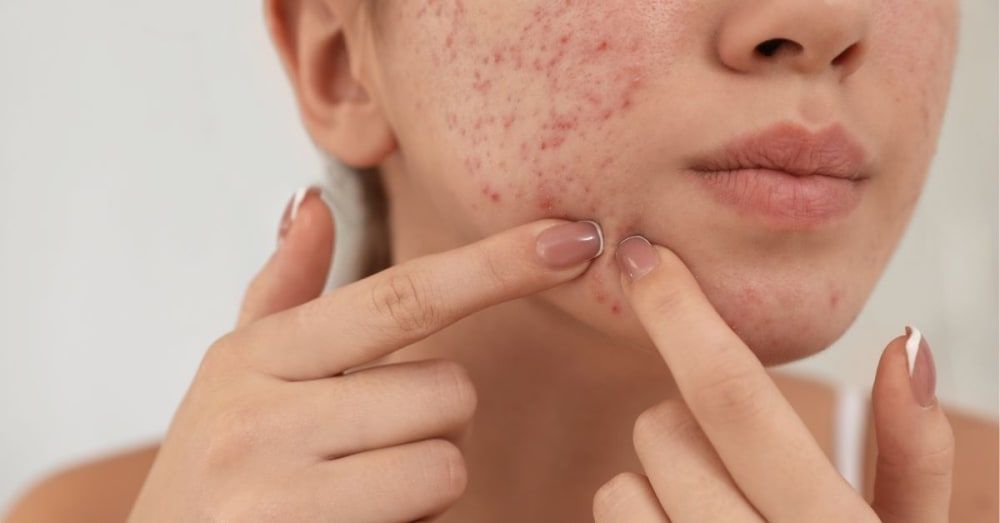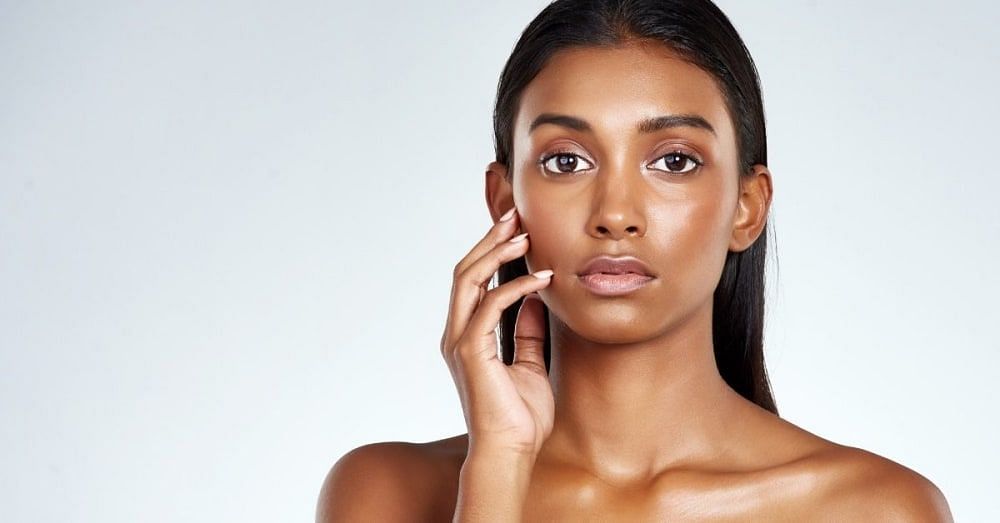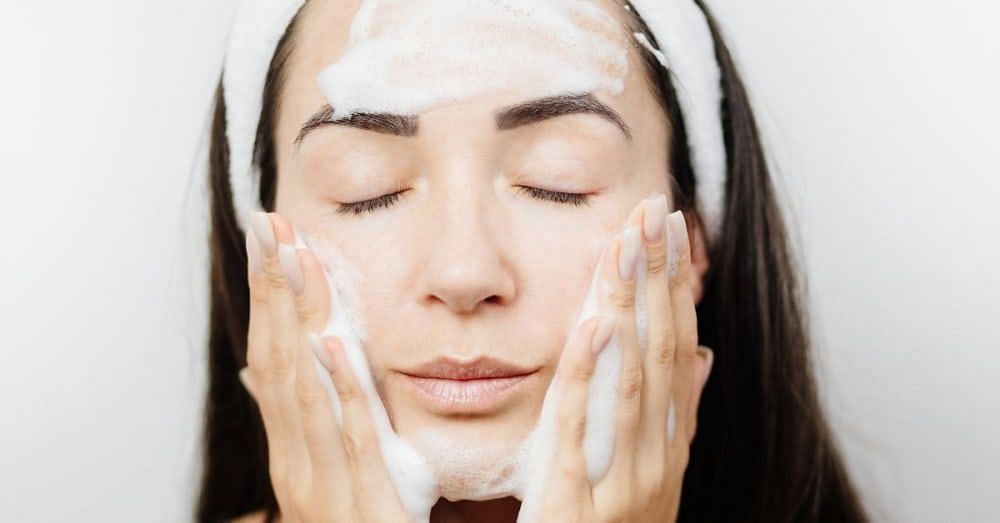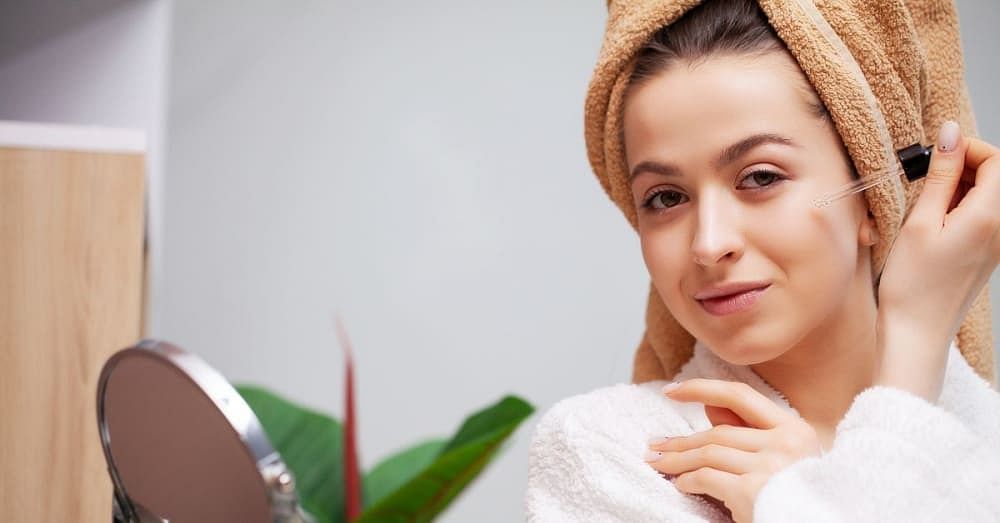Worried about frequent acne breakouts? It is probably because you have oily acne-prone skin.
Unexpected acne breakout is everyone’s worst nightmare. It affects not only your skin but also your quality of life. We understand how stressful acne breakouts can be and how they can affect your self-esteem.
In this article, we will help you deal with it by exploring some major questions like what is acne-prone skin, how to remove acne from the face, how to stop pimples coming on face at home, and how to get clear skin naturally.
What is Acne-Prone Skin?
Every type of skin has a risk of developing acne; only acne prone skin has a comparatively higher risk. It means the oil glands of the skin produce comparatively more sebum than other skin types, which leads to the formation of acne (or Acne Vulgaris).
Acne is the most common skin condition affecting around 80 to 95% of young men and 80 to 82% of young women. It usually begins during puberty and typically appears on the face, neck, chest, shoulder, and back. The condition can range from mild to severe in intensity.
Acne has clogged pores and can appear on your skin in the following ways:
- Small bumps
- Pus-filled bumps
- Whiteheads
- Blackheads
- Oily skin
- Nodules
- Cysts
Acne Types
There are broadly two types of acne:
1. Non-Inflammatory Acne
It is the mildest type of acne that appears due to clogged pores. It includes blackheads and whiteheads. Blackheads appear dark, flat, and open at the skin's surface, whereas whiteheads are small white or skin-colored bumps under the skin surface.
2. Inflammatory Acne
Acne, which is red in color, is inflammatory in nature. Acne can get inflammatory when the pores become clogged. You might spot these types of inflammatory acne:
- Papules: Small red bumps
- Pustules: Small bumps that contain pus
- Nodules: Deeper, larger acne that might be painful
There could be other skin conditions that involve acne-like breakouts, such as acne rosacea. Rosacea is a hypersensitive skin condition; in this case, the blood vessels of your face can increase and cause papules, pustules, and redness. They may occur at the same time as acne vulgaris.
Acne can also be divided into the following types based on the severity:
- Mild Acne: It refers to a few whiteheads or blackheads with mildly irritated small pimples at times.
- Moderate Acne: It refers to more blackheads, whiteheads, multiple pimples and some pustules. They are mainly present on the face and may leave acne scars too.
- Severe Acne: It refers to a large number of blackheads, whiteheads, papules, pustules, and painful nodules. Also, it can affect the face, forehead, back, and shoulders.
Causes of Acne
Our skin has pores that open to the hair follicles and oil glands. Sebum, secreted by oil glands, lubricates the skin, keeps it moisturized, prevents water from leaving the skin, and also prevents the formation of bacteria.
Clogged skin pores because of the following reasons can cause acne:
- Bacteria building up in the pores
- Overproduction of oil
- Dead skin accumulation on the skin
- Inflammation
Research has shown that oily skin is more prone to acne because of the production of excess oil. Other skin types can also experience acne breakouts because of poor skincare routine, and lifestyle factors such as a greasy diet and smoking can also clog the pores.
Symptoms of Acne-Prone Skin
If you have any of the following signs and symptoms, then you have acne-prone skin:
- Closed or plugged pores or whiteheads
- Open or plugged pores or blackheads
- Small red papules to tender papules
- Simple pimples
- Large painful nodules under the skin
- Pus-filled bumps or pustules
- Large painful pus-filled lumps (cystic lesions)
- Redness in the affected area
- Scarring from the last breakouts
Acne Risk Factors
You are at risk of developing an acne breakout if you have one of the following factors:
1. Age
People of all age groups can get acne, but it is more common in teenagers.
2. Genetics
If both of your parents have acne, there are chances that you will have acne breakouts. Our genes determine our skin type; some skin is more reactive and prone to inflammation.
3. Hormones
Although acne can occur at any age, there are certain stages of life that are more prone to acne breakouts. It is due to hormonal changes leading to overproduction of the oil in the skin. It happens in the following stages of life:
- Puberty
- Menstrual cycle
- Pregnancy
- Menopause
4. Medications
Some medications such as steroids used to treat asthma, allergies, and arthritis and lithium used to treat mood disorders can cause acne. They can also trigger and aggravate the symptoms.
5. Diet
Having food with a high glycemic index such as fast foods, sugar, dairy products, and refined grains can trigger acne.
6. Stress
As per a study, stress can stimulate sebum production and trigger acne.
7. Smoking
Studies suggest smoking can disrupt the sebum composition and cause oxidative stress to the skin leading to more acne.
8. Inappropriate Skincare
Harsh soap, chemical skin products, and too-hot water can affect the skin’s natural balance. Such things can trigger and exacerbate symptoms.
10. Other Triggers
The following factors can trigger acne or worsen the acne breakout:
- Lack of sleep
- Inadequate water intake
- Dandruff causing pimples on the forehead
- Humidity
- Excess sweating
- Pollution
- Exposure to toxins and UV rays
- Alcohol consumption
How to Prevent Acne Breakouts?
As they say, prevention is better than cure. It applies to acne breakouts as well. Instead of taking medications and using lots of skincare products, follow the below-mentioned routine and tips to reduce pimples and acne breakouts:
- Wash your face twice daily in the morning and before going to bed
- Wash your face after sweating, gyming, or going out and coming back home
- Use chemical-free skincare products
- Avoid harsh scrubbing
- Be gentle with your skin
- Keep yourself hydrated
- Wash things that come in contact with your skin, such as clothes, beddings, and makeup brushes
- Use sunscreen when in the sun
- Avoid tanning beds and tanning sprays
- Check ingredients in the products you use
- Do not pop pimples
- Take care of your hair care routine, as dandruff can cause acne on the forehead and neck
- Do not consume any dietary supplement to prevent acne without consulting the doctor
- Consult a qualified dermatologist for advice regarding skincare
How to Remove Acne From Face?
Acne and pimple marks can affect your appearance and confidence. You can try these home remedies and tips to reduce pimples and acne on the face:
1. Lemon
Studies suggest that lemon has a natural bleaching agent with antimicrobial activity that can effectively reduce pimples. Apply it directly to the skin, and avoid it if you have sensitive or flaky skin.
2. Raw Honey
As per a study, raw honey has antimicrobial properties. Along with its skin-hydrating properties, honey can reduce pimples. Apply directly to your face and keep it on for a few minutes. Wash it off with lukewarm water.
3. Argan Oil
Studies suggest that argan oil has anti-inflammatory and antibacterial properties that can reduce acne and acne marks.
4. Vitamin E Oil
Apply a few drops of vitamin E oil on the face directly or mix it with coconut oil daily. Studies suggest that vitamin E has regenerative properties that can reduce acne marks.
5. Tea Tree Oil
Studies suggest that the antibacterial and anti-inflammatory properties of tea tree oil reduce bacteria build-up around the hair follicles.
6. Apple Cider Vinegar
Make a paste by mixing one part of apple cider vinegar with two parts of honey. Apply it to the face for ten minutes, and then wash it off with cold water. Although no sufficient research is available, it is believed that the mixture is antimicrobial and prevents the accumulation of bacteria in the pores.
7. Turmeric
Studies suggest that turmeric has curcumin that has antibacterial properties. It can cause bacterial build-up around the skin pores. You can mix turmeric with aloe vera or rose water, then apply the paste for a few minutes on the face.
8. Green Tea
As per a study, the antioxidant properties of green tea reduce excess oil production and, thus, reduce acne formation. Either make a paste of honey with green tea or drink green tea once daily for healthier skin.
9. Aloe Vera
Make a paste by mixing aloe vera gel with lemon or honey. Apply it to the face for 10 to 15 minutes, and then wash it off with cold water. Studies suggest that aloe vera has anti-acne properties that reduce acne breakouts.
How to Treat Acne?
Wondering how to treat acne? Try the mentioned anti-acne remedies and face masks to reduce pimples. Also, it is best advised to consult the doctor and get acne medications. You might need medications for one of the following reasons:
- Controlling acne
- Reducing acne marks
- Avoiding scarring or other skin damage
Medications used to treat acne-prone skin reduce oil production or treat bacterial infection. Although it may take many weeks to years to clear up acne completely, you can see noticeable changes in 4 to 8 weeks. Treatment of acne depends upon age, the severity of acne, and other skin conditions. The doctor may advise you of the following topical medications:
- Retinoids such as tretinoin, adapalene, and tazarotene
- Antibiotics such as clindamycin with benzoyl peroxide and erythromycin with benzoyl peroxide
- Azelaic acid
- Salicylic acid
- Dapsone
The doctor may also advise the following oral medications:
- Antibiotics
- Combined oral contraceptives
- Isotretinoin
They may also recommend the following therapies with the medications:
- Light Therapy: The doctor uses a light-based therapy to treat acne.
- Chemical Peel: It includes using chemicals such as salicylic, glycolic, or retinoic acids. It is beneficial for mild acne. It improves the appearance though it is temporary and requires frequent seatings.
- Drainage and Extraction: The doctor may use tools to remove whiteheads and blackheads that topical medications cannot clean, resulting in scarring.
- Steroid Injections: They are helpful in cases of large painful pimples.
How to Clear Face Acne?
Following skin care habits will help clear face acne:
- Wash your face as soon as possible after sweating.
- Use a gentle and non-abrasive cleanser.
- Rinse the face with lukewarm water.
- Consult a skin specialist if the tips mentioned above don’t work.
Best Skincare Routine For Acne Prone Skin
You might have several questions when it comes to following a skincare routine, such as can body lotion be applied on the face? Can we apply moisturizer after serum? And many more. Don’t worry; we are here to help.
The first step is to know your skin type. A skincare routine that is not right for your skin type can cause more problems. Therefore, it is important to know your skin type. Do you know your skin type? If not, follow the following simple steps:
- Wash your face with a mild face wash.
- Pat dry it.
- Do not apply any skincare products.
- After a few hours, check your skin:
- If it is shiny, you have an oily skin type.
- If it is flaky or rough, you have dry skin.
- If it is shiny on the forehead or nose and dry on the cheeks, it is a combination skin type.
- If there is no visible change, then it is normal skin.
Only oily skin doesn't need to be prone to acne. You can have acne breakouts even if your skin type is normal. Once you know your skin type, choose products that best suit your skin.
Look out for the following ingredients when buying the products. Also, choose lightweight products as they cause fewer clogged pores:
- Salicylic Acid: It unclogs pores. It is ideal for blackheads and whiteheads.
- Benzoyl Peroxide: It kills bacteria that cause acne and is ideal for inflammatory acne.
- Retinoids: These remove dead skin by gently exfoliating it and reducing inflammation.
Now, you know what to buy for your skin. It’s time we tell you how to use them. Here we provide some proven tips for using skincare products and also tell you what is the best skincare routine for your acne-prone skin:
1. Morning Skincare
Following is the step-by-step guide for a morning skincare routine:
- Cleanser: Cleanse the skin with a good cleanser in the morning.
- Toner: It will get rid of excess oil that may lead to acne.
- Moisturizer: It will keep your skin hydrated and is a must. Make sure to apply an anti-acne face lotion on the face instead of body lotion.
- Sunscreen: Some acne medications can increase your sensitivity to sunlight. Therefore, you need a broad-spectrum sunscreen.
2. Evening Skincare
Following is the step-by-step guide for your evening skincare routine:
- Makeup Remover: If you have put on makeup, you should first remove them. Properly removing them will unclog the pores.
- Cleanser: The entire day, you get exposed to dirt and chemicals. So, it is best to cleanse your skin before going to bed gently.
- Acne Treatment: If you are on the acne spot treatment, apply it after using the cleanser so it gets absorbed deep into the skin. It can prevent new breakouts and target scarring.
3. Once or Twice a Week
You should do the following skincare regime once or twice a week to get blemish-free flawless skin:
- Exfoliate: Use an exfoliant as per your skin type or a simple homemade exfoliant to remove dead skin that can clog the pores.
- Face Mask: Use it twice weekly to combat oiliness and remove dirt. It also hydrates the skin and reduces redness due to acne.
How to Reduce Pimples?
Pimples are solid bumps on the skin that may or may not have pus. You can reduce pimples by applying proper skincare. Here are a few tips to reduce pimples on acne-prone skin:
- Do not touch the face as your face can spread bacteria to other parts and lead to inflammation and breakouts.
- Keep hair clean to prevent oil build-ups and dandruff that can trigger more acne.
- Resist the urge to pop pimples.
- Talk to a doctor.
- Take the prescribed medications on time and follow all the precautions.
- Do not miss the follow-up check-ups.
- Choose a skin-friendly lifestyle.
How to Get Clear Skin Naturally?
Who doesn’t wish to have flawless skin? Here are some proven tricks and tips to reduce pimples and get clear skin naturally:
- Practice yoga and meditation to keep yourself stress-free.
- Drink 8 to 10 liters of water daily.
- Moisturize your skin after washing or shaving.
- Use a mild soap in the shower.
- Use warm water for the bath.
- Exfoliate skin once a week.
- Quit smoking and alcohol consumption
- Follow a morning and evening skincare routine daily as per your skin type.
- Avoid eating greasy food.
- Add vitamin C, amino acids and mineral-rich food to your diet, such as whole grains, nuts, citrus fruits, fatty fishes, flaxseeds, etc.
- Check the ingredients of your skincare products. They should be free from harsh chemicals and skin-friendly.
- Try DIY face masks and home remedies.
When to See a Dermatologist About Your Acne?
You can treat mild acne with over-the-counter products. If your skin doesn’t improve, you can consult a skin specialist. Also, if the acne is severe and causing scarring and has the following symptoms, consult a doctor:
- Flushing
- Redness on the skin
- Visible blood vessels
- Sensitivity
- Raised skin patches
- Thick scars (keloids)
- Acne scarring
You may need medications, either topical, oral, or both. You may also be advised of some lifestyle changes. They may ask you for a follow-up to check how the skin healing is progressing and update the treatment plan accordingly.
You may also need to consult a doctor if you have the following symptoms:
- Faintness
- Swelling in the eye, face, tongue, or lips
- Difficulty in breathing
- Tightness of the throat
- If you have an allergy to the application of medicines
Summing Up on Acne Prone Skin
Acne is small bumps to large pus-filled lumps on the face, neck, back, chest, and shoulder. It can tarnish one’s confidence. You need to take good care of the skin to prevent acne breakouts.
If acne persists after trying all the home remedies, consult a skin doctor. They will advise you on medications, dietary changes, and skincare regime. But, it can take a few months to years to clear up acne. Don't panic. Patience is the key to flawless skin.
FAQs
Can Body Lotion Be Applied on Face?
If you use body lotion for a few days on the face, it's fine. But it can worsen acne or other skin conditions as the products are not formulated for the facial skin.
Can We Apply Moisturizer After Serum?
No, it is best to apply the serum before moisturizer. Serums are lightweight, whereas moisturizers are heavy. If you apply the serum after moisturizer, it won’t get absorbed by the skin properly.
Is Aloe Vera Good for Acne?
Yes, Aloe vera is good for acne. As per a study, aloe vera has antibacterial properties that prevent bacteria build-ups and acne-causing bacteria. It prevents and reduces acne.
What Vitamins Are Good for Acne?
Studies suggest that vitamins A and E are good for acne treatment.
References
- Leena Chularojanamontri, May 2014; Moisturizers for Acne - https://www.ncbi.nlm.nih.gov/pmc/articles/PMC4025519/
- Harsimran Kaur Malhi, August 2017; Tea tree oil gel for mild to moderate acne; a 12 week uncontrolled, open-label phase II pilot study - https://pubmed.ncbi.nlm.nih.gov/27000386/
- Mohammad Abid Keen, July 2016; Vitamin E in dermatology - https://www.ncbi.nlm.nih.gov/pmc/articles/PMC4976416/
- Tzu-Kai Lin, January 2018; Anti-Inflammatory and Skin Barrier Repair Effects of Topical Application of Some Plant Oils - https://www.ncbi.nlm.nih.gov/pmc/articles/PMC5796020/


